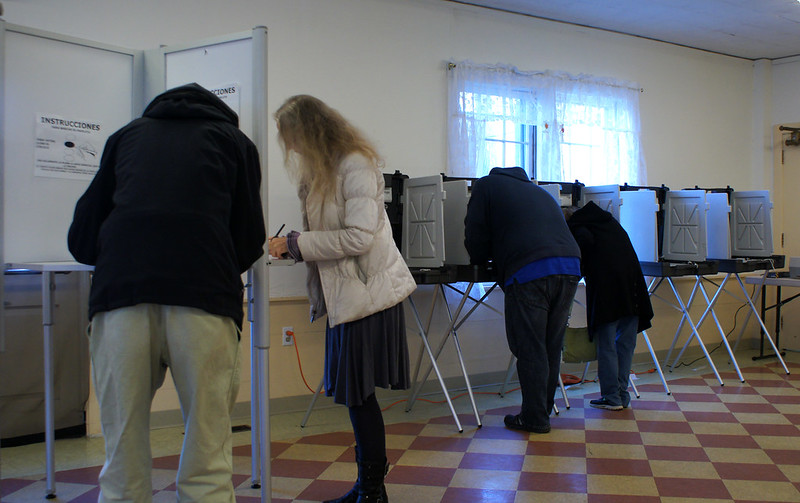On Aug. 26, the College of Social and Behavioral Sciences kicked off the fall semester with a virtual panel discussion regarding a recent University of Massachusetts/WCBV poll. The webinar, which was part of the College’s “Social Science Matters” series, looked at the results of the poll in the current political climate surrounding the pandemic.
The event, “Politics During the Pandemic: Insights from UMass Poll”, featured three speakers, two of which were University professors: Tatishe Nteta, associate professor of political science and director of UMass Poll, and Jesse Rhodes, chair and professor of political science and associate director of UMass Poll. The final panelist was alumni Stephanie Murray ‘17, author of the POLITICO Massachusetts Playbook.
The webinar began with introductions from each speaker. Nteta shared background information about the University/WCBV poll, as well as graphs with its results. “We fielded an online poll of about 500 Massachusetts registered voters, and of those 500, about 360 were likely Democratic Senate Primary voters,” Nteta said.
The questions in the poll focused on topics pertaining to current political and social events. According to Murray, “it’s important to note the top priority of Massachusetts voters, [and] . . . according to the UMass poll, those are the coronavirus, the pandemic, unemployment, jobs and the economy, housing [and] healthcare.”
Rhodes echoed Murray’s thoughts about the focus on the pandemic, and explained that “what we’ve seen is, it’s not just affecting their lives right now, it’s affecting how they’re thinking about the future within the state.” The most prominent example of how these thoughts will affect decision making is quickly approaching: the Massachusetts Senate Primary.
The University/WCBV poll asked various questions regarding the upcoming state election. “Surprisingly, at least at that time, we found that Senator [Edward] Markey was up 15 percentage points over Representative [Joseph] Kennedy,” Nteta said. Markey maintained a distinct advantage over his opponent in almost all demographics, except for non-white voters and those with high school education or less.
(Read more about the poll results and the primary race)
As the senate election date approaches, many may be wondering if the poll’s results will hold true. When asked about the reliability of the poll, Nteta said “polls are really a snapshot . . . of where voters are in that moment in time.” The best way to check a poll’s ability to predict outcomes is to compare it with the results of other polls, he added.
A question was raised regarding the benefit of polls in the event that they cause confusion to the public, but Rhodes said that “for the most part, the public can understand polls perfectly well so long as those who produce polls and those who report them report them accurately, and also report them in their context and with their strengths as well as their limitations.” He added that one must keep in mind that polls represent the feelings at the time it was fielded.
“Certainly no single poll can bear the weight of predicting an outcome or determining an outcome.”
Sara Abdelouahed is a Collegian Correspondent can be reached at [email protected]. Follow her on Twitter at @AbdelouahedSara.



















